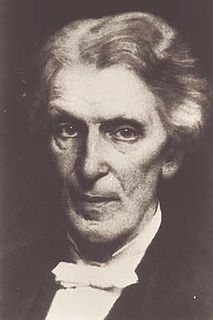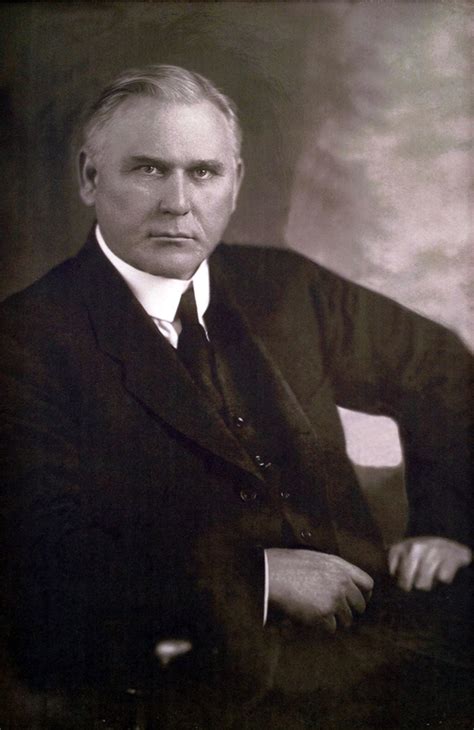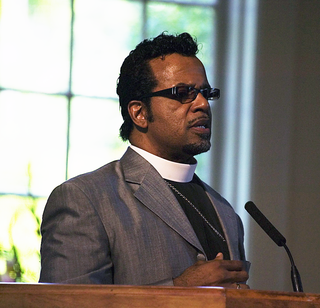A Quote by James Martineau
The incarnation is true, not of Christ exclusively, but of Man universally, and God everlastingly.
Quote Topics
Related Quotes
There is One God and One Mediator between God and man, the man Jesus Christ (cf. I Tim. 2:5). For He still pleads even now as man for my salvation; for He continues to wear the Body which He assumed, until He make me a god by the power of His Incarnation; although He is no longer known after the flesh (cf. II Cor. 5:16) ? I mean, the passions of the flesh, the same, except sin, as ours.
May we not have a picture of Christ, who has a true body? By no means; because, though he has a true body and a reasonable soul, John 1:14, yet his human nature subsists in his divine person, which no picture can represent, Psalm 45:2. Why ought all pictures of Christ to be abominated by Christians? Because they are downright lies, representing no more than the picture of a mere man: whereas, the true Christ is God-man
I find no fault in Him."...You can find fault in anyone else, but you can find
no fault in Jesus. Holy, harmless, undefiled, sinless: there He is! Christ is God's way to man; Christ is man's way to God. Christ is the true Jacob's ladder. By Him the penitent sinner, the believing soul, the redeemed child of God may come unto the Father and enter into the house of many mansions.
The death of Christ made it possible for God to accept sinful man, and that he has, in fact, done so. Consequently, whatever separation there is between man and the benefits of God's grace is subjective in nature and exists only in man's mind and unregenerate spirit. The message man needs to hear then, is not that he simply has a suggested opportunity for salvation, but that through Christ he has, in fact, already been redeemed to God and that he may enjoy the blessing that are already his through Christ
As a magnifying glass concentrates the rays of the sun into a little burning knot of heat that can set fire to a dry leaf or a piece of paper, so the mystery of Christ in the Gospel concentrates the rays of God's light and fire to a point that sets fire to the spirit of man. ... Through the glass of His Incarnation He concentrates the rays of His Divine Truth and Love upon us so that we feel the burn, and all mystical experience is communicated to men through the Man Christ.
The whole story of creation, incarnation, and our incorporation into the fellowship of Christ's body tells us that God desires us, as if we were God, as if we were that unconditional response to God's giving that God's self makes in the life of the Trinity. We are created so that we may be caught up in this, so that we may grow into the wholehearted love of God by learning that God loves us as God loves God.
The Bible portrays God as entering into covenants with people which, when broken, causes him grief and sorrow. The biblical prophet Hosea and God's using him as an illustration of how much Israel's idolatry costs God emotionally points to God's vulnerability. But also the incarnation of God in Jesus Christ who, even as God the Son, suffered for our sins, points to God's vulnerability.
Jesus Christ was God - the Personal God become man. He has manifested Himself many times in different forms and these alone are what you can worship. God in His absolute nature is not to be worshipped. Worshipping such God would be nonsense. We have to worship Jesus Christ, the human manifestation, as God. You cannot worship anything higher than the manifestation of God. The sooner you give up the worship of God separate from Christ, the better for you.
We must make a great difference between God's Word and the word of man. A man's word is a little sound, that flies into the air, and soon vanishes; but the Word of God is greater than heaven and earth, yea, greater than death and hell, for it forms part of the power of God, and endures everlastingly.
The continuing, direct operation of the Holy Ghost on those who are called to be God's children implies, in fact, a broadening process of incarnation. Christ, the son begotten by God, is the first-born who is succeeded by an ever-increasing number of younger brothers and sisters. There are, however, neither begotten by the Holy Ghost nor born of a virgin. . . . Their lowly origin (possibly from the mammals) does not prevent them from entering into a close kinship with God as their father and Christ as their brother.
We impose our modern worldview on the Bible to make it conform to our intellectual happy place. But we deceive ourselves into thinking this works or is legitimate. We fail to realize that the supernatural things we want to avoid are no more supernatural (or "weird") than the things that define the Christian faith. What's so "normal" about the virgin birth, the Trinity, the deity of Christ, the bodily resurrection of Christ, the hypostatic union of the incarnation (Jesus was 100% God and 100% man)?








































